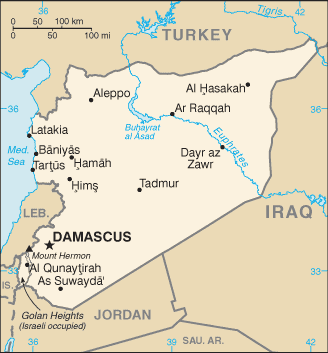As far back as early November, the international effort to get a peace process in Syria going hinged heavily on deciding who was a rebel and who was a terrorist. To this day, diplomats warn the process is stalling on the inability of nations to answer that question.
 The most recent UN draft on the situation continues to list defining terrorist organizations as something “still to be negotiated,” despite this seemingly being one of the primary focuses of several of the involved nations.
The most recent UN draft on the situation continues to list defining terrorist organizations as something “still to be negotiated,” despite this seemingly being one of the primary focuses of several of the involved nations.
Russia in particular has been keen for this to be resolved, both to know who the proper rebel groups are to start inviting to the talks, and to settle once and for all which rebel factions are “terrorists” who can be legitimately bombed. With other nations railing at every Russian airstrike not explicitly aimed at ISIS territory, this is an important distinction for them.
But other nations are resisting this quick resolution, likely in part because it gives them a talking point against Russia, but also because every major nation involved in the process has a different idea of who is and isn’t legitimate. Saudi Arabia, in particular, is bankrolling several Islamist groups that are almost impossible not to include on the final “terror” list.
Early on in the process, everyone foresaw this as an issue, and predicted a lot of “horse-trading” on the final list. Ultimately, if this horse-trading is going on behind the scenes, we haven’t seen it, and rather everyone seems to be dragging their feet rather than risk losing important allies to the terror list.
Indeed, this is going on so long that some diplomats envision simply moving on with the talks without resolving who’s going to be allowed to participate, a move which itself could lead to a huge mess and a lot of infighting at the talks.


